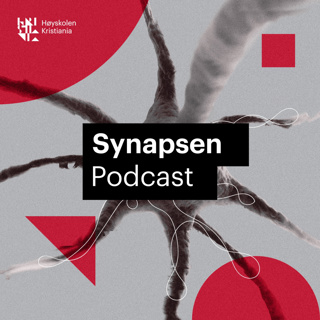
David Beer, “Popular Culture and New Media: The Politics of Circulation” (Palgrave, 2013)
Popular Culture and New Media: The Politics of Circulation (Palgrave, 2013) is written by David Beer, a Senior Lecturer in Sociology at York University in the UK. He blogs here and tweets here. The book attempts to describe and analyse the impact of new media on culture and society, using a range of critical theoretical starting points. Its use of theory is especially important to such a fast moving topic. The book aims to have continued and longer term relevance to debates about culture, even as specific technologies come and go, as a result of its theoretical basis David’s book raises a series of challenges for a range of academic areas. Perhaps the most important is the impact of media communications on the sociology of culture. Sociological studies of culture have been slow to consider the impact of new media, as they have tended to focus on debates about the relationship between tastes and class or social status. Popular Culture and New Media argues that the architecture underlying the way many people access culture, from Amazon.com recommendations, through to the metadata tag associated with archiving new media users activity, profoundly shapes peoples relationship to culture. In order to critically engage with modern culture we must understand how cultural objects and artifacts circulate and the modes of that circulation. In addition, David’s book draws our attention to how culture is increasingly becoming a form of data whilst, at the same time, data is becoming culture. Attempts to track what is trending online, what people are interested in, is itself a cultural practice. The emergence of large scale data sources have provided new ways to produce cultural artifacts. Culture is data and data is culture. The book will be of interest to readers from across the social sciences, in particular communications studies, sociology and social theory. However it also speaks directly to what it is like to live and participate in modern culture. It will, therefore, be a good read for anyone interested in the mechanisms that allow contemporary cultural life to function. Learn more about your ad choices. Visit megaphone.fm/adchoices Support our show by becoming a premium member! https://newbooksnetwork.supportingcast.fm/critical-theory
21 Sep 201338min

Sarah Banet-Weiser, “Authentic: The Politics of Ambivalence in a Brand Culture” (NYU Press, 2013)
In Authentic: The Politics of Ambivalence in a Brand Culture (NYU Press, 2013), Sarah Banet-Weiser scrutinizes the spread of brand culture into other spheres of social life that the market–at least in our imaginations–had left untouched: politics, religion, creativity, and the self. Banet-Weiser observes that the authenticity concept seems to carry more weight in a culture of selling: We have come to expect, and to some extent accept, that authenticity, like everything else, can be trademarked. Through rich case studies–Dove ad campaigns, Facebook self-performance, street art, green activism, and New Age spirituality among them–Authentic identifies the pervasive (and often troubling) ambivalence of branded living. Learn more about your ad choices. Visit megaphone.fm/adchoices Support our show by becoming a premium member! https://newbooksnetwork.supportingcast.fm/critical-theory
27 Aug 201357min

Brian Michael Goss, “Rebooting the Herman and Chomsky Propaganda Model in the Twenty-First Century” (Peter Lang, 2013)
Brian Michael Goss, professor of communication at St. Louis University in Madrid, has taken one of media’s most studied theories and given it a facelift. In Rebooting the Herman and Chomsky Propaganda Model in the Twenty-First Century (Peter Lang, 2013), Goss revisits the model created by Edward Herman and Noam Chomsky in their 1988 book, Manufacturing Consent. The filters remain, but Goss pushes the model into the modern context of new media models and expanded global exportation. “Far from condemning journalism,” Goss writes, “I hope to see it more closely approximate its mythologies about itself.” “Rebooting” is an important work, relevant not just to scholars, but all consumers of media. Learn more about your ad choices. Visit megaphone.fm/adchoices Support our show by becoming a premium member! https://newbooksnetwork.supportingcast.fm/critical-theory
22 Jul 201344min

Stacy Alaimo, “Bodily Natures: Science, Environment, and the Material Self” (Indiana UP, 2010)
In her book, Bodily Natures: Science, Environment, and the Material Self (Indiana University Press, 2010), Stacy Alaimo approaches the concepts of “science, environment, and self” in an extremely novel and inventive way. The central concept in Alaimo’s work is that of “trans-corporeality” which she describes as a way of theorizing the relationship between humanity and the world at large as not being clearly delineated and separate, but as fluid. As this relates specifically to nature and the environment, Alaimo’s intention is for the reader to reimagine questions of environmental ethics and environmental practices as not isolated issues but rather deeply personal as the environment and our material selves are bound up with one another in a deeply intimate manner. I found Alaimo’s central approach with “trans-corporeality,” theorizing the human as being “already in the world,” extremely refreshing when compared to the idea of human agency in postmodern studies. In this way, Alaimo provides an alternate framework for conceiving of human agency, and thus an “out” of sorts, a release, from the bounds of postmodernism’s isolated and castrated human agent. Alaimo calls this novel direction, “New Materialisms.” With this concept, Alaimo offers new insights into feminist thought and theory. Bodily Natures: Science, Environment, and the Material Self is sure to appeal to many students and scholars of literary studies and critical theory. Learn more about your ad choices. Visit megaphone.fm/adchoices Support our show by becoming a premium member! https://newbooksnetwork.supportingcast.fm/critical-theory
8 Jul 201351min

Michael Serazio, “Your Ad Here: The Cool Sell of Guerrilla Marketing” (NYU Press, 2013)
“Power through freedom.” Michael Serazio‘s Your Ad Here: The Cool Sell of Guerrilla Marketing (NYU Press, 2013) traces the mushrooming world of guerrilla marketing–defined to include word-of-mouth, viral, and advergaming, along with a host of other, often hidden kinds of persuasion. The book describes the ways that advertisers give up “control” to consumers through “authentic” discovery, dialogue, amateurism, the non-sell sell, and even anti-marketing messages themselves–all of which serve, paradoxically, to reinforce control and commercialism. The consumer subject, writes Serazio drawing on Foucault and Gramsci, is strategically engaged to act without the sense of being acted upon–a kind “corporate ventriloquism.” The book includes rich, detailed case studies and interviews with marketers, who recount their “cool sell” campaigns for America’s Army, PBR, and Burger King’s “Subservient Chicken.” Learn more about your ad choices. Visit megaphone.fm/adchoices Support our show by becoming a premium member! https://newbooksnetwork.supportingcast.fm/critical-theory
3 Jul 201358min

Dominic Pettman, “Human Error” (UMinnesota, 2011)/”Look at the Bunny” (Zero Books, 2013)
“The humans are dead.” Whether or not you recognize the epigram from Flight of the Conchords (and if not, there are worse ways to spend a few minutes than by looking here, and I recommend sticking around for the “binary solo”), Dominic Pettman‘s Human Error: Species-Being and Media Machines (University of Minnesota Press, 2011) will likely change the way you think about humanity, animals, machines, and the relationships among them. Pettman uses a series of fascinating case studies, from television programs to films to Sufi fables to pop songs, to explore the notion of Agamben’s “anthropological machines” and the human being as a “technospecies without qualities” in a modern mediascape that includes Thomas Edison’s film Electrocuting an Elephant, Werner Herzog’s Grizzly Man, and the interplanetary soundscape created by NASA (among many, many others). We recently gathered over Skype to talk about some of the major thematic and argumentative threads snaking through this book and Pettman’s recent exploration of totems in Look at the Bunny: Totem, Taboo, Technology (Zero Books, 2013). Both books take on the varied ways that love, technology, identity (both human and not), and economies have been transformed in a world that includes pacifist Orcs, voices without bodies, ecologies without nature, reptile-doctors, and pixelated lovers. Enjoy! During our conversation, Pettman mentions a film about the zigzag totem that can be found here. Cabinet Magazine, which also comes up in the course of our conversation, can be found here. Learn more about your ad choices. Visit megaphone.fm/adchoices Support our show by becoming a premium member! https://newbooksnetwork.supportingcast.fm/critical-theory
31 Mai 20131h 15min

Amir Eshel, “Futurity: Contemporary Literature and the Quest for the Past” (University of Chicago Press, 2013)
In his very recent work, Futurity: Contemporary Literature and the Quest for the Past(University of Chicago Press, 2013), Amir Eshel presents us with a very interesting examination of what he refers to as “futurity” or literature’s ability to provide us with a way to access the past, rethink it, and move forward. Eshel’s work here can best be understood as part of the larger effort in literary studies to move beyond the tired and exceedingly fruitless lens of the hermeneutics of suspicion and the despairing chasm of postmodernity. As foci, Eshel examines postwar German literature and Hebrew literature particularly focused on the Israeli-Palestinian conflict. Overall, the portion of Futurity that continues to linger with me is Eshel’s beautiful ruminations on W.G. Sebald’s masterpiece, Austerlitz. Eshel’s reflections on Austerlitz encouraged me to pick up that novel once more and for this alone I highly encourage anyone interested in postwar German literature, Hebrew literature, and or the future and meaning of literary studies to give Eshel’s work a read. Learn more about your ad choices. Visit megaphone.fm/adchoices Support our show by becoming a premium member! https://newbooksnetwork.supportingcast.fm/critical-theory
22 Jan 201356min

Nicholas De Villiers, “Opacity and the Closet: Queer Tactics in Foucault, Barthes, and Warhol” (University of Minnesota Press, 2012)
In his book, Opacity and the Closet: Queer Tactics in Foucault, Barthes, and Warhol (University of Minnesota Press, 2012), Nicholas de Villiers takes up an examination of the work of the three titular authors as a way of understanding their queerness and more specifically, how each man subverted the “in-and-out of the closet” paradigm. De Villiers devotes ample time to each man, however I found his thoughts on Foucault and Barthes of particular importance as both have come to be so deeply associated with postmodernism, poststructuralism, and queer theory. It is safe to say that Foucault is in large part responsible for the theoretical and philosophical foundations of what we know of today as queer theory and queer studies. This fact makes Foucault’s own relationship with his “out” sexuality all the more fascinating and de Villiers does a great service to Foucault, showing that Foucault himself subverted the “in-and-out of the closet” paradigm and society’s need to ferret out and make known our sexualities. While many scholars, academics, and cultural critics have criticized Foucault for his “silence,” de Villiers’s work suggests that Foucault’s life was a practice in complicating and disrupting the immense societal desire to see homosexuality expressed in one sanctioned way. De Villiers work here is deep, insightful, and refreshing in its attempt to offer an alternative to “suspicious reading.” I do hope you enjoy our conversation. Photo Credit: Lauren M. Jones Learn more about your ad choices. Visit megaphone.fm/adchoices Support our show by becoming a premium member! https://newbooksnetwork.supportingcast.fm/critical-theory
11 Jan 201357min




















